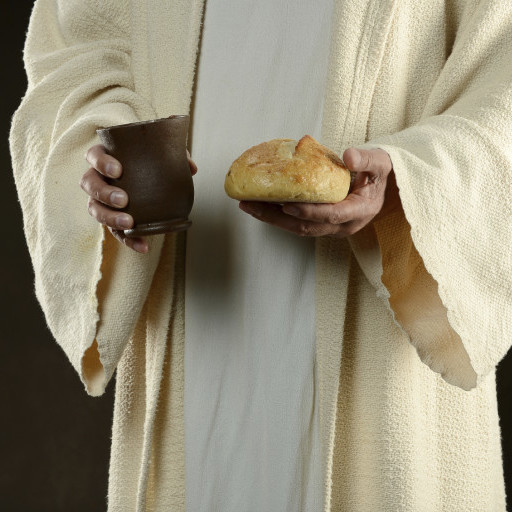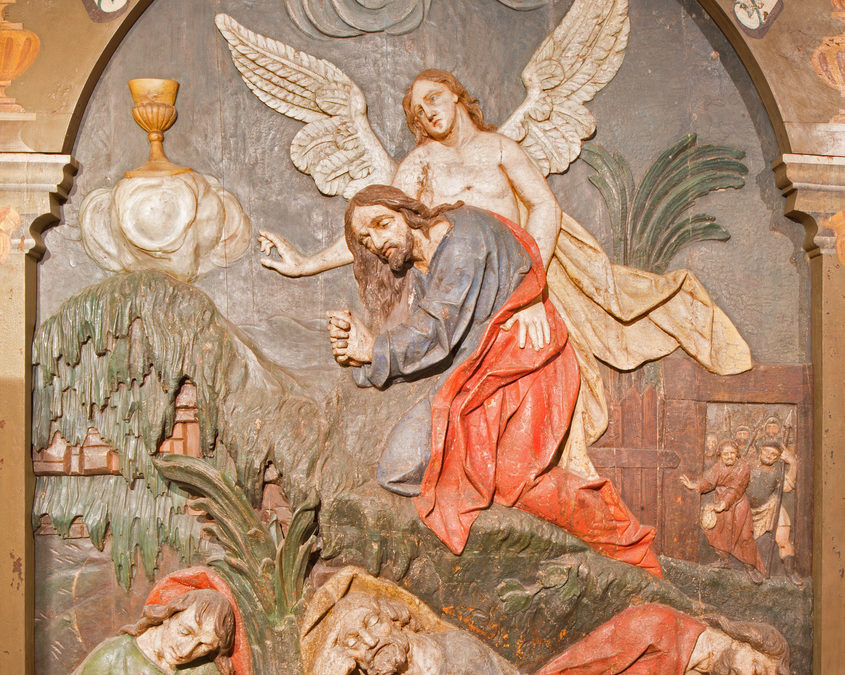“Deliver us from Evil” The Lord’s Prayer
One of the Names of Jesus Christ is “The Deliverer”[i] In Romans Paul quotes Isaiah:
“And so all Israel shall be saved: as it is written, There shall come out of Sion the Deliverer, and shall turn away ungodliness from Jacob:”[ii]
Nephi states one of the most important themes of the Book of Mormon in its first few verses:
“I, Nephi, will show unto you that the tender mercies of the Lord are over all those whom he hath chosen, because of their faith, to make them mighty even unto the power of deliverance.”
Throughout the rest of the Book of Mormon, “the power of deliverance” is seen many times.
- Nephi and his brothers are delivered from the hands of the thieving murderous Laban multiple times.[iii]
- The people of Limhi are delivered from the bondage to the Lamanites.[iv]
- Alma Senior and his people are in bondage and delivered from the Lamanites.[v]
- Alma the Younger is delivered from the chains of hell by remembering the Savior as taught by his father.[vi]
- Alma and Amulek are imprisoned, threatened with death and starved, yet they are delivered by a miraculous earthquake that kills their captors.[vii]
- The Lamanites and Kingmen capture many cities and have many Nephite prisoners who are all delivered by the Lord with the help of the inspired generals Moroni and Helaman.[viii]
- Nephi and Lehi are in prison and delivered by angels resulting in a miraculous conversion of their wicked captors.[ix]
- When the Gadianton robbers are destroying whole villages, Lachoneus gathers all the people together into one body and the Lord delivers them from a plague of terrorism that had been going on for decades.[x]
While the physical deliverance of the righteous from the grasp of wicked men is an important theme in the Book of Mormon, the spiritual deliverance from Satan’s grasp is an even more important theme. Nephi tells us that without the resurrection we would be in bondage to Satan forever:
“And because of the way of deliverance of our God, the Holy One of Israel, this death, of which I have spoken, which is the temporal, shall deliver up its dead; which death is the grave. And this death of which I have spoken, which is the spiritual death, shall deliver up its dead; which spiritual death is hell; wherefore, death and hell must deliver up their dead, and hell must deliver up its captive spirits, and the grave must deliver up its captive bodies, and the bodies and the spirits of men will be restored one to the other; and it is by the power of the resurrection of the Holy One of Israel.”[xi]
“Rhuomai” is the Greek word in the New Testament Matthew for deliver. Just like other words in The Lord’s Prayer in Greek, it has multiple meanings: to rescue, to deliver from danger or destruction, to remove “someone in the midst(presence) of danger or oppression, i.e. delivered ‘right out of’ and to (for) the rescuer” and to be snatched from evil or the evil one.
The word snatched is used 25 times in the Bible and often in the same context as The Lord’s Prayer “deliver us from evil”. For example:
“I shattered the fangs of the unjust and snatched the prey from his teeth.”[xii]
“and snatched us away from our enemies, for his loyal love endures,”[xiii]
“Nevertheless, after wading through much tribulation, repenting nigh unto death, the Lord in mercy hath seen fit to snatch me out of an everlasting burning, and I am born of God.”[xiv]
“Then we who are alive, who remain, will be snatched away at the same time together with them in the clouds for a meeting with the Lord in the air, and thus we will be together with the Lord always.”[xv]
This desire to be protected, delivered, redeemed and rescued from evil is very ancient. Ancient Egyptians and other nations in ancient times wore amulets with little papyri in them containing magic incantations to Isis and other gods for protection from evil and evil spirits. The Israelites under Moses were commanded to use something different called Tefillim which means prayers or reminders of whom they worshipped.[xvi] These were also felt to be a protection from evil.
The Coptic Egyptian graves have been dug up from the 1st century AD. Due to the arid nature of the desert burial, not only are the amulets present, but also the papyri with the actual prayers in them.[xvii] Many of the amulets are like the phylacteries of the Jews before them. Likewise, they were divided into 4 parts. Each part would have a mini scroll with the first words of each of the four gospels. Some have the Lord’s prayer in them in a shortened form. Some have additions and deletions to the Lord’s prayer.[xviii]
Not only was the Lord’s prayer felt to be a protection against falling into temptation by the adversary and deliverance from evil and evil spirits, but the prayer was put into Christian phylacteries whose ancient purpose was the same, ie protection from evil. Jesus did not condemn phylacteries, but only condemned making them ostentatious and showy, to be seen by others who were tricked into believing that the Pharisees were actually following the injunctions inside them.
“But all their works they do for to be seen of men: they make broad their phylacteries, and enlarge the borders of their garments,”[xix]
As an example of one passage of the 4 found in phylacteries, Jews have the following phrases inside the phylacteries:
“Hear, O Israel: The Lord our God, the Lord is one. Love the Lord your God with all your heart and with all your soul and with all your strength. These commandments that I give you today are to be on your hearts. Impress them on your children. Talk about them when you sit at home and when you walk along the road, when you lie down and when you get up. Tie them as symbols on your hands and bind them on your foreheads. Write them on the doorframes of your houses and on your gates.”[xx]
One of earliest mentions of the Lord’s prayer outside the gospels contained a request for the Holy Spirit and is attributed to Marcion who lived between 85 and 160 AD. [xxi] Two centuries later an intact copy of The Lord’s Prayer written by Bishop Gregory of Nyssa says the same thing:
The fourth-century bishop Gregory of Nyssa wrote about the prayer in Luke that read “May Your Holy Spirit come upon us and purify us” instead of “Your kingdom come.”[xxii]
Pres. Henry Eyring spoke of deliverance:
“Today I wish to bear witness of God’s power of deliverance. At some point in our lives we will all need that power. Every person living is in the midst of a test. We have been granted by God the precious gift of life in a world created as a proving ground and a preparatory school. The tests we will face, their severity, their timing, and their duration will be unique for each of us. But two things will be the same for all of us. They are part of the design for mortal life. First, the tests at times will stretch us enough for us to feel the need for help beyond our own. And, second, God in His kindness and wisdom has made the power of deliverance available to us.”[xxiii]
Today we still need to remember what God and Christ have done for us. We still need the Holy Ghost and light for the path back to God. As Christians we no longer use amulets, but we do carry something just as valuable to remind us, we carry our scriptures on our smart phones, easy to access throughout the day to remind us of God’s plan of salvation, His great mercy, and the gift of His Son, our Lord and Savior, our Redeemer even Jesus Christ the Lord.
[i] https://urbanareas.net/info/100-biblical-names-god/
[ii] Romans 11:26 and Isaiah 59:20 King James Version (KJV)
[iii] 1 Nephi 3 and 4
[iv] Mosiah 22
[v] Mosiah 24
[vi] Alma 36
[vii] Alma 14:26-28
[viii] Alma 43 through 62
[ix] Helaman 5
[x] 3 Nephi 3 and 4
[xi] 2 Nephi 9:11-12,19
[xii] Job 29:17
[xiii] Psalm 136:24 New English Translation (NET Bible)
[xiv] Mosiah 27:28 The Book of Mormon
[xv] 1 Thessalonians 4:17 Julia Smith Translation
[xvi] https://www.jerusalemperspective.com/2162/
[xvii] https://www.bibleodyssey.org/en/passages/related-articles/manuscripts-of-the-lords-prayer
[xviii] https://www.biblicalarchaeology.org/daily/biblical-artifacts/artifacts-and-the-bible/ancient-amulets-with-incipits/
[xix] Matthew 23:5 King James Version (KJV)
[xx] Deuteronomy 6:4-9 New International Version (NIV)
The other 3 passages written on the scrolls are: Exodus 13:1-10, 13:11-16, Deuteronomy 11:12-21
https://www.bbc.co.uk/religion/religions/judaism/customs/tefillin.shtml
http://www.jewishencyclopedia.com/articles/12125-phylacteries
[xxi] https://www.bibleodyssey.org/en/passages/related-articles/manuscripts-of-the-lords-prayer
[xxii] ibid
[xxiii] https://speeches.byu.edu/talks/henry-b-eyring/power-deliverance/

